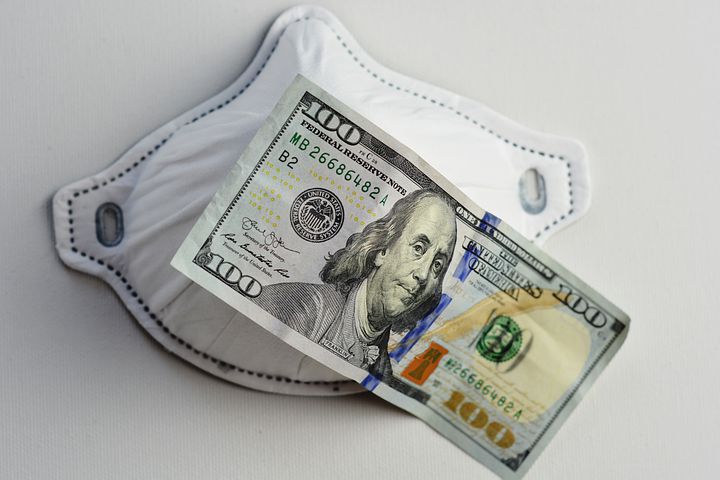|
�
Archives
September 2021
Categories
All
|
Back to Blog
Over the past weeks, two things continue to dominate the news: health and the economy. This pandemic has highlighted how important and fragile these two aspects of our lives are. Because we feel good, we can easily neglect to check on our health Apart from the regular advice to eat better and exercise, one thing we can do moving forward is to get an annual health check. In my view this is particularly important if you have a pre-existing condition, a family history of an illness or are past the age of say 35+. Many of us may think that we need private healthcare to get this but this is not the case. Last year, I used Wowcher to get a £120 health check for a family member with a pre-existing condition to make sure everything was fine. The report was detailed and highlighted some known and unknown problems in a clear PDF. This provided some peace of mind for the whole family. The NHS also provides health checks, although you have to be 40+ to qualify. Also factor in health checks for specific areas (breast checks, kidney checks etc), depending on your medical history. Apart from our financial investment, we should have a health saving pot that is allocated to getting needed health care. We are not only responsible for ourselves but also our friends and family and it is important that we remind and help others to invest in their health as well. In the UK, we are lucky that we can get free health services. On a couple of occasions I forgot, or dismissed the need to complete my General Practitioner (GP) checks or vaccines - not a good idea. I got a chance to get a health check via work and the GP told me that we all should contact our GP if something does not feel right. The earlier the better. The NHS does not cover everything however, special services like dentistry, dermatology, physical therapy can all incur supplemental charges. Again a money pot can really save you here. This is especially true if you have children who may specifically require services like braces, paediatric assessments etc. If you want services beyond the NHS, you can shop around to get the best health insurance for yourself where you can pay a monthly fee to get covered. Look at what health services are covered before you make a decision. Many people think they need a job that offers private insurance, but self pay can be as low as £15, and may actually turn out cheaper than paying out of pocket per visit. One more thing, if you have a family and a serious pre-existing conditions/family history of health problems, consider getting life insurance to protect your loved ones. 5 ways you can invest in your health:
As part of our financial investment, we should have a health saving pot that is allocated to getting a health check. 6 ways to create financial safety nets to weather unprecedented stormsLast year I explored the definition and steps that lead to financial vulnerability - last week, I read an article that sums up how this happens ' first gradually and then suddenly'. In the news today, we see many stories of people who have been forced to lose their jobs particularly those in the gig economy and retail industries. This has been particularly difficult for women, many of who are employed in these sectors. For the lucky ones who qualify for the government support, they can still earn up to 80% of their income. But even still, a 20% pay cut can leave people in very tough conditions. Nonetheless, without this government support, I shudder to think of how life can be. Here are a few things I think we can do: 1. It is very important to Build and Sustain an emergency fund. A emergency fund is a saving account where you save enough to cover your expenses for a period of time if you are unable to work. Everyone should have an emergency fund. Start with saving 1 month worth of expenses then aim for at least 3 months, then 6 months. An emergency fund allows you to build the foundation to have something to tap into when things get really tough. If you are able to take this one step further, build a curve ball account to cover the day-to-day expenses that WILL arise. 2. Consider insurance to cover income loss in the event you get ill or lose your job. This way, if your income stops, you can get covered for up to 24 months until you are able to get back on your feet. Like other forms of insurance, you pay a monthly amount and if anything goes wrong, you get an income paid to you no matter what. 3. Consider getting mortgage insurance to reduce the risk of losing your home If you own a home, your mortgage is likely to be your largest monthly expense. In the event that your are unable to keep up with your payments, a mortgage insurance makes sure that you are covered. 4. Have a pension pot I cannot imagine how retirees with low or no pension are supporting themselves in this pandemic. We can be short sighted in these times and forget that we will live a long life. When we retire, our pension pot will become the core income source to weather storms like these. Making sure you are building a sizeable pension pot for when you are older is a constant goal for us all. 5. Invest in the stock market You are not going out, eating out or going on vacation. With the world on lockdown, the stock market is feeling the effects making some stocks/share and funds are cheaper. If you’ve got spare change, this is a great time to get stocks cheap. With interest rates getting lower (I saw one lender providing a 0.05% on savings), the stock market is one place where you can get a good return in the long run. 6. Negotiate the interest payments on your debts We know that there are good and bad ways to handle debts. If you are paying high interest on your debts, this might be a good opportunity to negotiate low rates with your provider. I have seen many articles of companies announcing support to their customers in this unprecedented time. Reach out and see what they can do to make you life easier for the long term. All in all, I hope we can do our very best to give ourselves and our loved ones the strongest chance of living a healthy life. Remember health is wealth!
What other things are you doing to invest in your health and finances?
1 Comment
Read More
|
Proudly powered by Weebly



